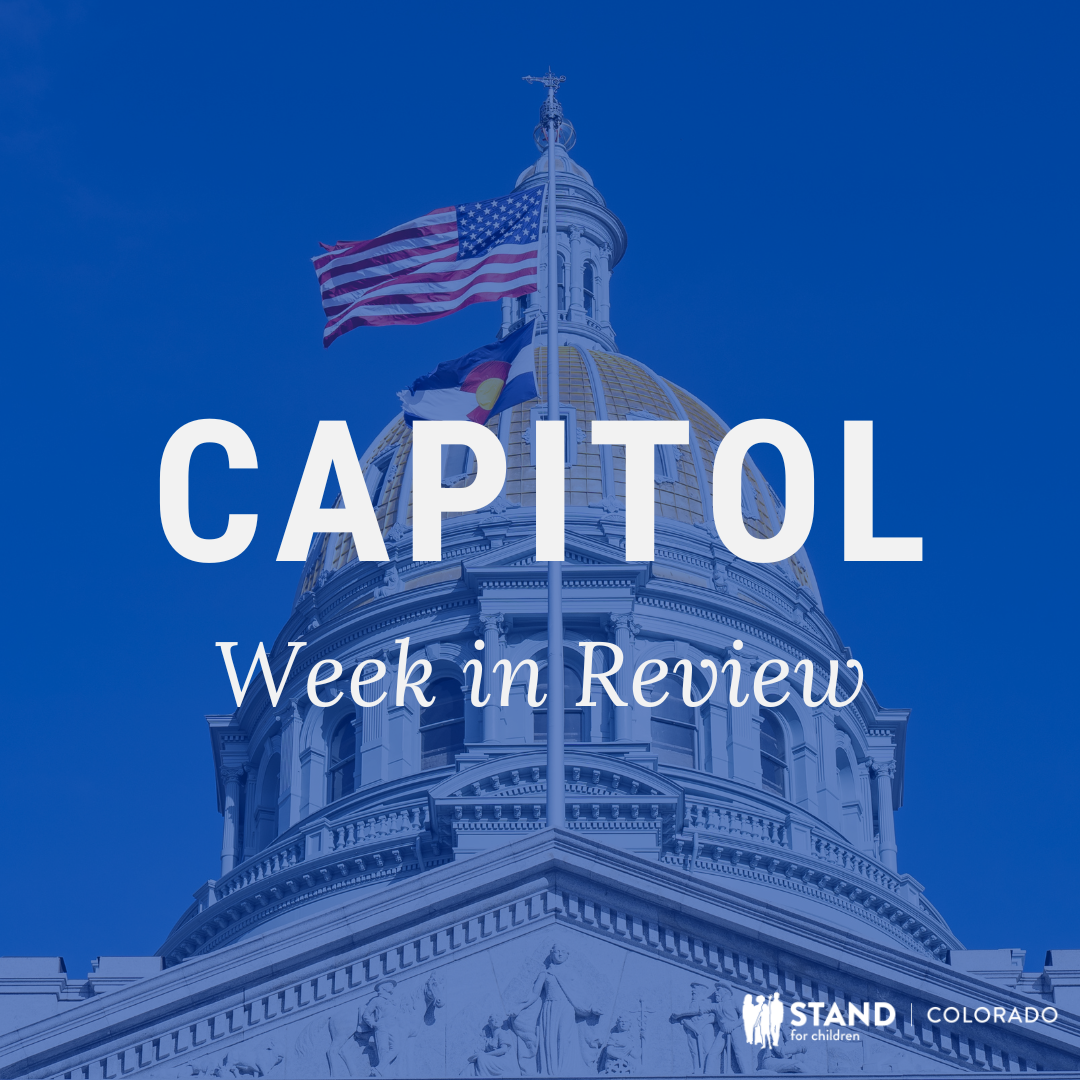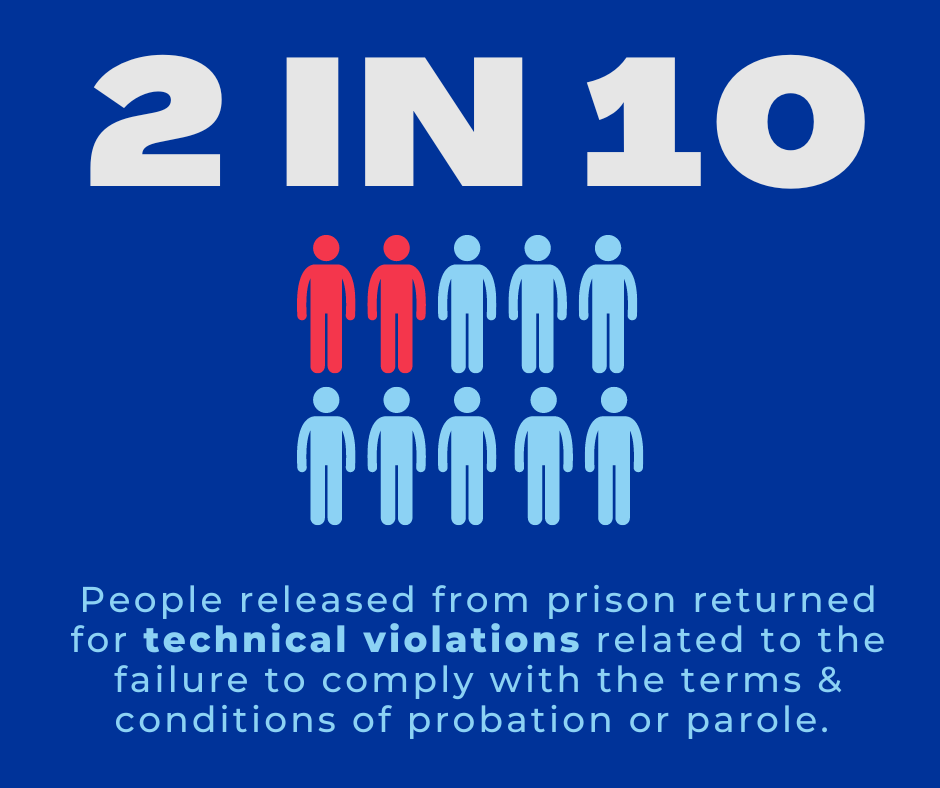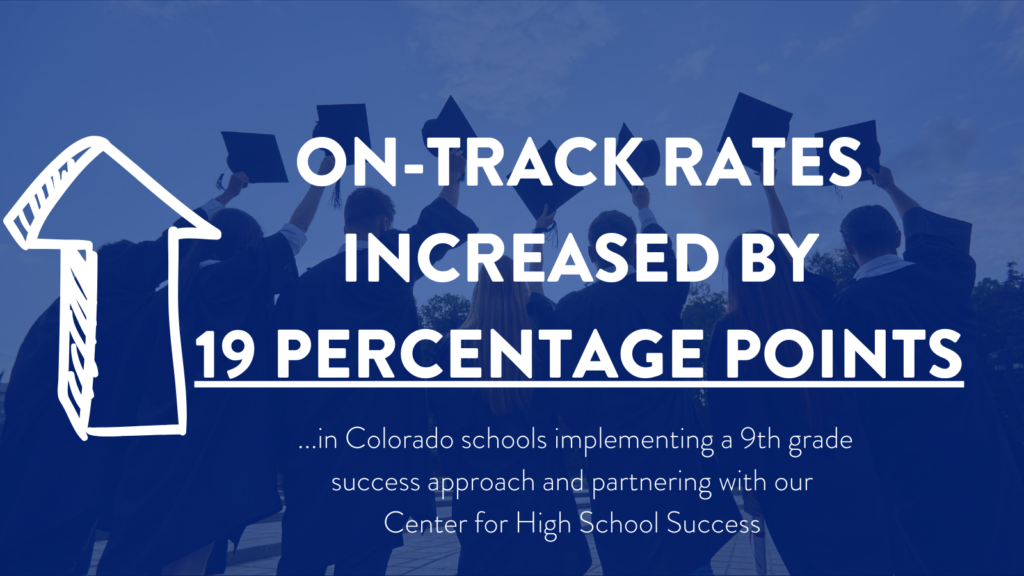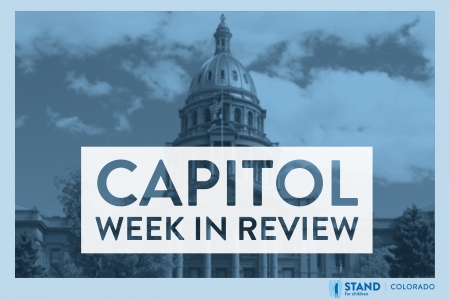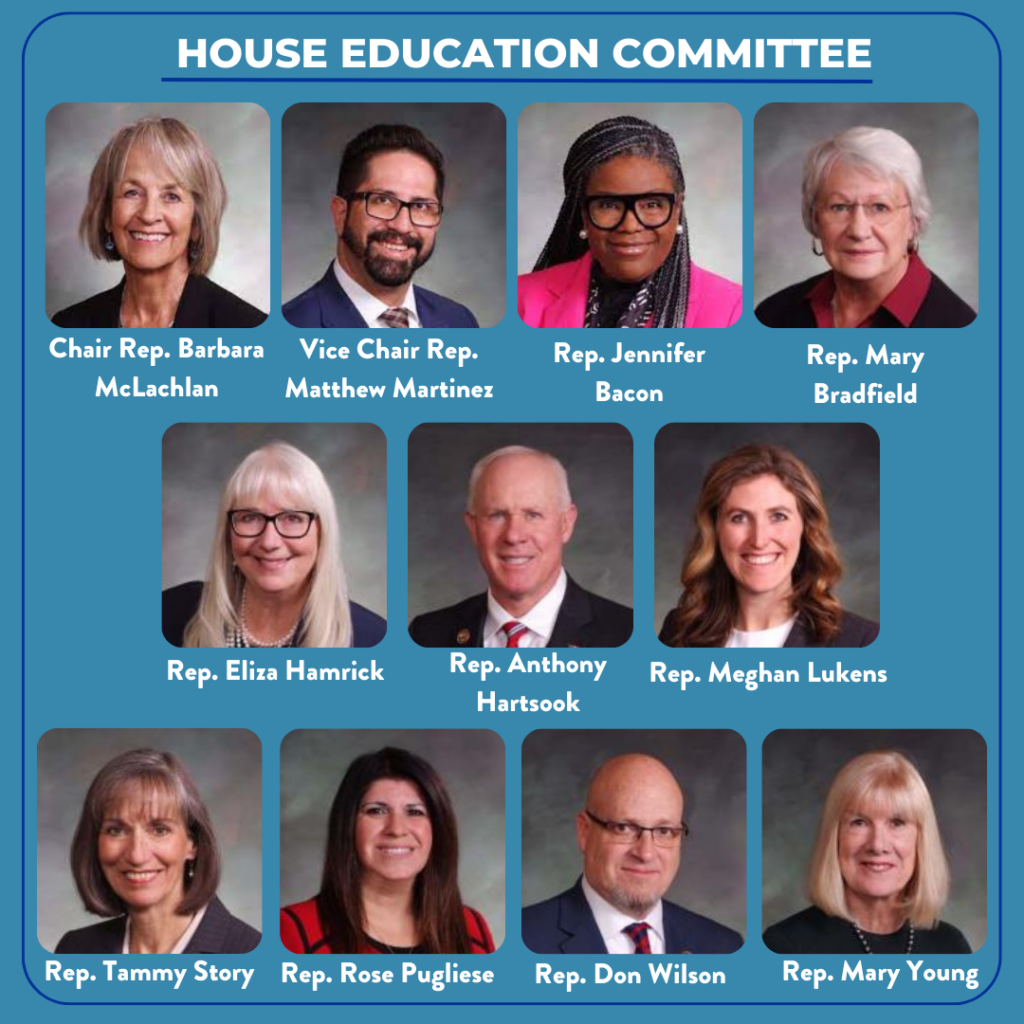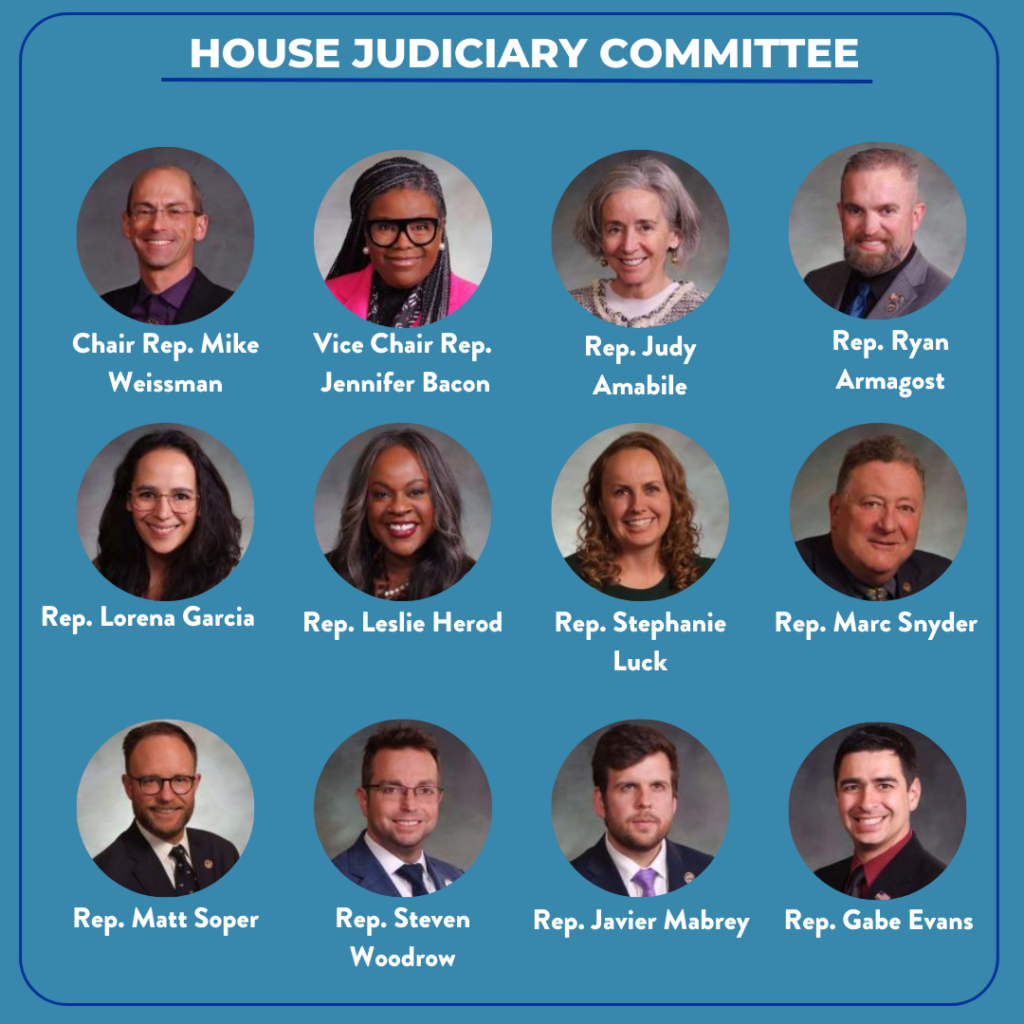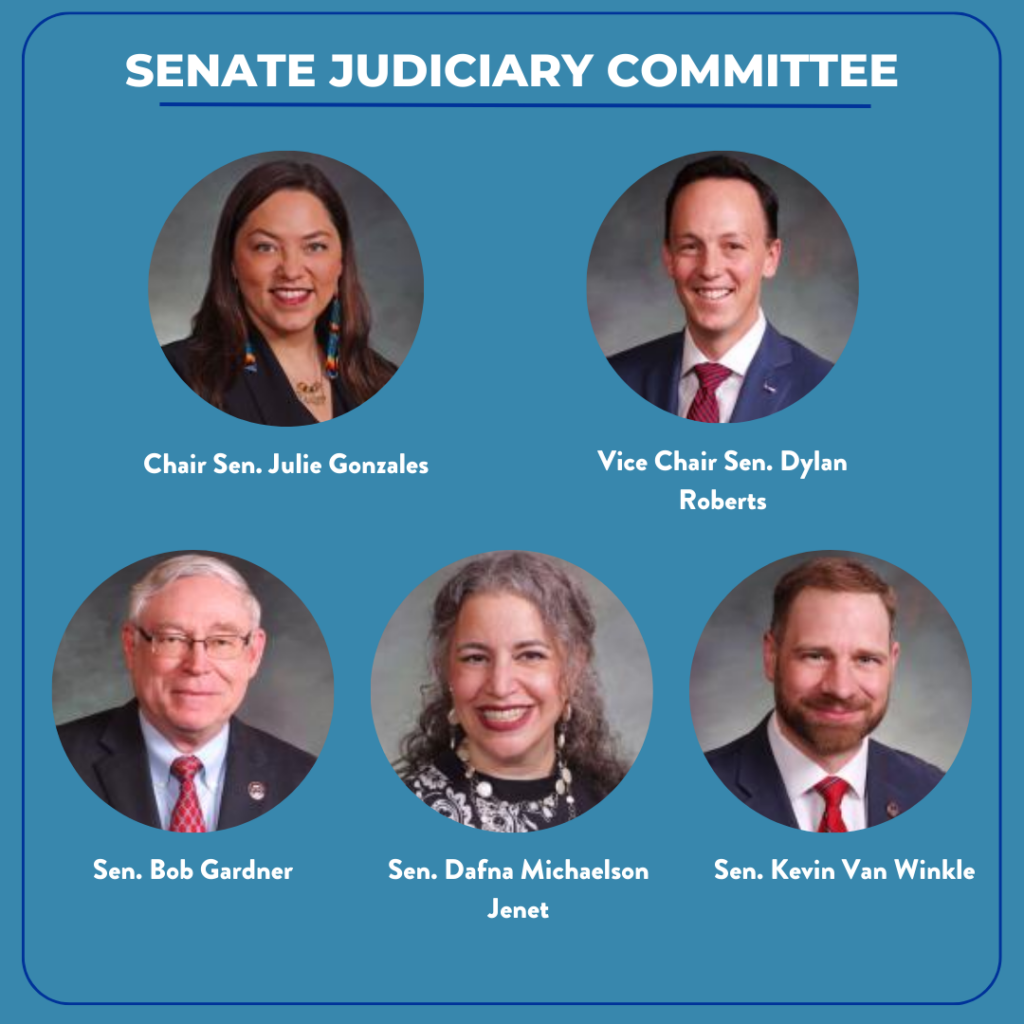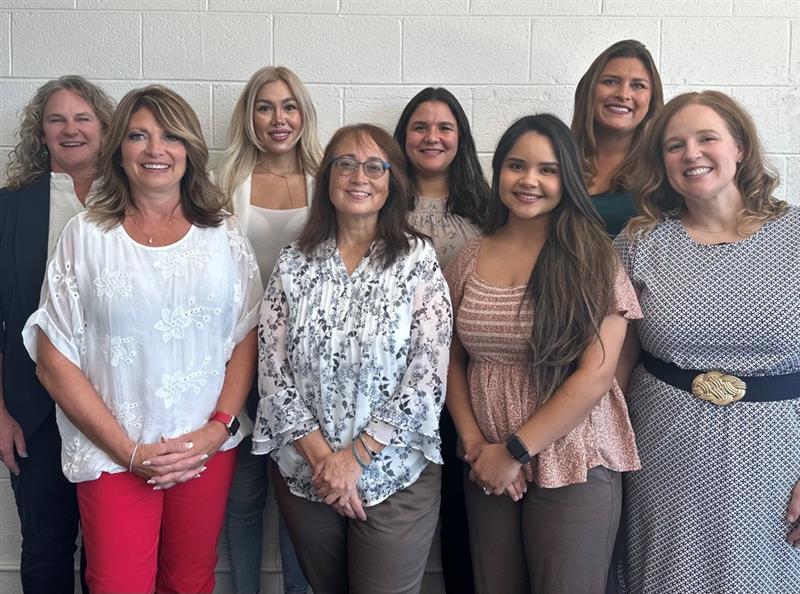Welcome to Capitol Week In Review, our newsletter keeping you informed about policy concerning educational equity and making our schools and communities more supportive. You will also hear from us about opportunities to engage in advocacy on topics important to you.
Legislation of Interest
HB24-1003, Opiate Antagonists and Detection Products in Schools, expands upon current law to allow schools to maintain a supply of opiate antagonists on school buses and allows school bus operators to administer them in good faith. The House Education Committee is scheduled to hear the bill Thursday, February 8th.
SB24-053, Racial Equity Study, requires the state historical society to conduct a study to determine historical and ongoing effects of slavery and subsequent systemic racism on Black Coloradans that may be attributed to state policies, and to identify measures to address those effects. The Senate Committee on State, Veteran and Military Affairs Committee passed the bill.
HB24-1004, Ex-Offenders Practice in Regulated Occupations, creates a process for ex-offenders to receive authorization to practice in state-regulated occupations. The bill is scheduled to be heard by the House Business Affairs and Labor Committee on Thursday, February 8th.
HB24-1133, Criminal Record Sealing & Expungement Changes, addresses issues raised through the implementation of Colorado’s “Clean Slate” policy, which automatically seals the criminal records of individuals who are convicted of a non-violent offense once certain conditions have been met. The bill expands eligibility for automatic criminal record sealing for individuals arrested due to mistaken identity, for those acquitted, and convictions for offenses that are no longer considered illegal under new state statute. This bill was introduced in the House.
Our Take: Englewood High School Demonstrates Benefits of Investing in 9th Grade Success Work
Englewood’s on-track rate went from
73% to 86%
this last semester
Englewood High School has been implementing a 9th grade success approach in partnership with our Colorado Center for High School Success for two years. Their 9th Grade Academy is a robust effort to support students by implementing proven interventions to increase the number of 9th graders on-track to graduate by the end of the year.
See How Englewood High School’s 9th Grade Academy is Improving Student Outcomes
Colorado schools and districts that are investing time and money implementing a ninth grade on-track approach continue to demonstrate results for students. That is why we are advocating to increase funding for the Colorado 9th Grade Success Grant Program, and make it a permanent program
Take Action: ADVOCATE FOR MENTAL HEALTH SUPPORT FOR Colorado youth
The need for mental health supports for Colorado children is greater than ever before, and the legislature is considering legislation to help.
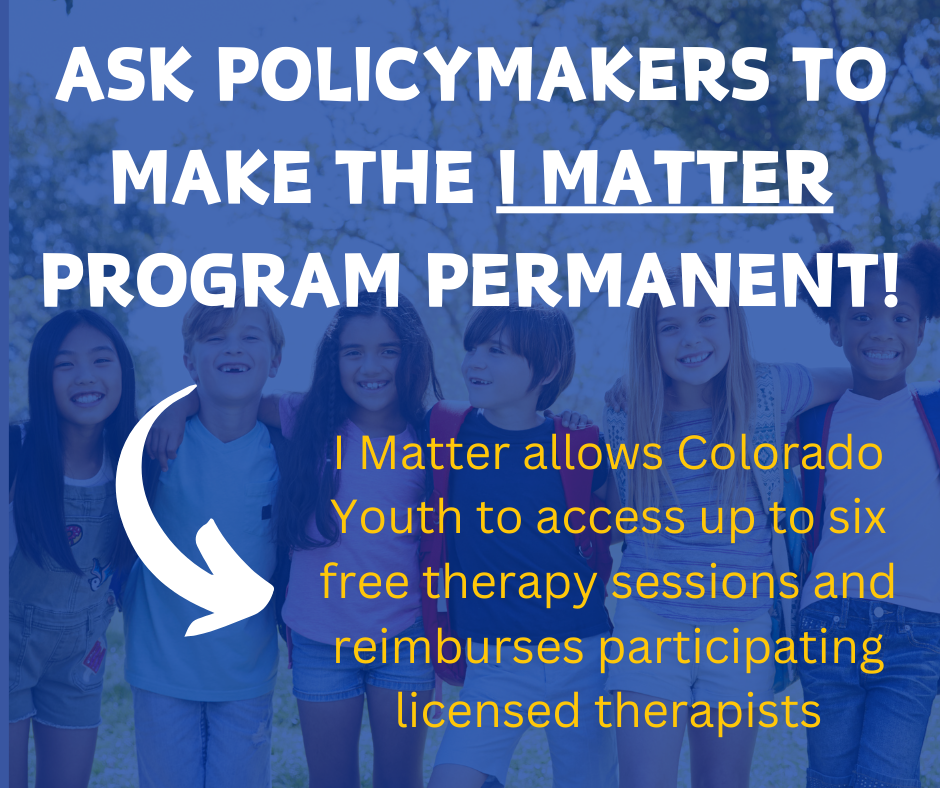
SB24-001, will continue indefinitely, the “I Matter” youth mental health services program which provides up to six free therapy sessions and reimburses participating licensed therapists. SB24-001 cleared the first legislative hurdle when it was passed by the Senate Health and Human Services Committee. It will be considered by the Senate Appropriations Committee in the coming weeks.
At a time when there are many things competing for limited resources, Senators need to hear that supporting our children’s mental health is a top priority for you. Children’s Hospital Colorado declared a “state of emergency” in youth mental health in May 2021 due to striking increases in the number of Colorado kids and teens arriving in emergency rooms seeking support in a mental health crisis.
What We’re Reading
Colorado Public Radio, After 30 years, a new way to fund Colorado’s schools is ready for lawmakers’ eyes
Colorado Public Radio, Racial equity study bill passes first hearing at Colorado legislature
Chalkbeat Colorado, 2024 Colorado General Assembly: The people’s guide to following education issues




